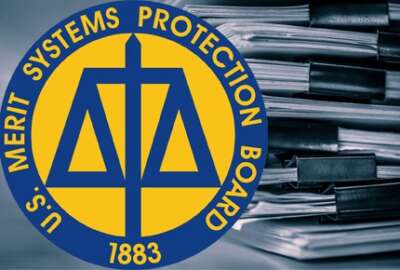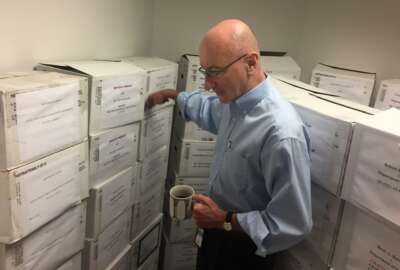
Whistleblower groups urge congressional action on MSPB nominees
A coalition of whistleblower advocates are urging Congress to restore a quorum to the Merit Systems Protection Board by confirming at least two of the president's...
Whistleblower advocacy groups are urging congressional action on the Merit Systems Protection Board, which has lacked a quorum for more than three years now.
The Project on Government Oversight, Government Accountability Project, American Civil Liberties Union and Union of Concerned Scientists are among the organizations who wrote to House and Senate leaders on Tuesday.
The groups, known together as the “Make it Safe” coalition, said they sought congressional leadership on restoring order to the Whistleblower Protection Act, which they described as “at severe risk of complete breakdown.”
The most “obvious symptom,” they said, is the dysfunction at the MSPB.
The president’s three nominees to fill the MSPB have been sitting quietly in the Senate for months, and as Federal News Network has previously reported, the delays have sparked a debate among federal employee groups over who’s to blame for the historic absences at the board.
The Senate Homeland Security and Governmental Affairs Committee easily cleared the last of the three MSPB nominees, Chad Bungard, last June. The president’s other two nominees, Dennis Kirk and Julia Clark, cleared the same committee with bipartisan support last February.
The intent, as has been the plan for many of the president’s nominees, is to confirm all three of the MSPB appointees with a single vote in the Senate by unanimous consent.
Read more: Workforce News
The Senate could, however, move forward with two of the president’s nominees. Some employee unions and other organizations have raised concerns about Kirk, the president’s pick to serve as MSPB chairman.
“When employees prevail after administrative hearings their victories remain indefinitely in limbo while agencies petition for review by a non-existent board,” the letter reads. “This is unprecedented. Previously the board has operated effectively for extended periods with two members.”
Two members would, in fact, restore a quorum to the MSPB. The board previously acted with two members, Susan Tsui Grundmann and Mark Robbins, for about two years during the Obama administration.
The Senate hasn’t confirmed a single new member to the MSPB since 2015. It’s lacked a quorum since January 2017 and has had no board members at all for nearly a year.
The backlog of pending appeals at the MSPB has grown to more than 2,500 during the past three years. The agency has also been unable to grant temporary relief to federal employees who experience whistleblower retaliation.
“The guardrails are coming off our government’s merit system,” Irvin McCullough, deputy director of legislation for the Government Accountability Project, said in a statement. “It needs independent leaders to fight against the politicization of the federal work force and defend whistleblowers challenging retaliation, and the Senate must immediately confirm the two non-controversial nominees to staff the board.”
Read more: Management News
Beyond restoring a quorum to the MSPB, whistleblower advocates are pushing for other changes to existing law.
“Even if the board were staffed, the Whistleblower Protection Act is compromised by an unacceptable irony,” the whistleblower advocates said. “Federal employees who blow the whistle make the nation’s most significant disclosures, but have the weakest rights of any significant sector of the labor force.”
They suggested, for example, giving federal whistleblowers new legal remedies to pursue retaliation cases.
Some members on the House Oversight and Reform Committee examined these potential solutions at a hearing on whistleblower protections last month.
Committee Chairman Carolyn Maloney (D-N.Y.) said she’s working on new legislation designed to strengthen and clarify whistleblower protections for federal employees.
Copyright © 2025 Federal News Network. All rights reserved. This website is not intended for users located within the European Economic Area.
Nicole Ogrysko is a reporter for Federal News Network focusing on the federal workforce and federal pay and benefits.
Follow @nogryskoWFED
Related Stories

Federal whistleblowers quickly losing confidence in their own legal protections, advocates say





